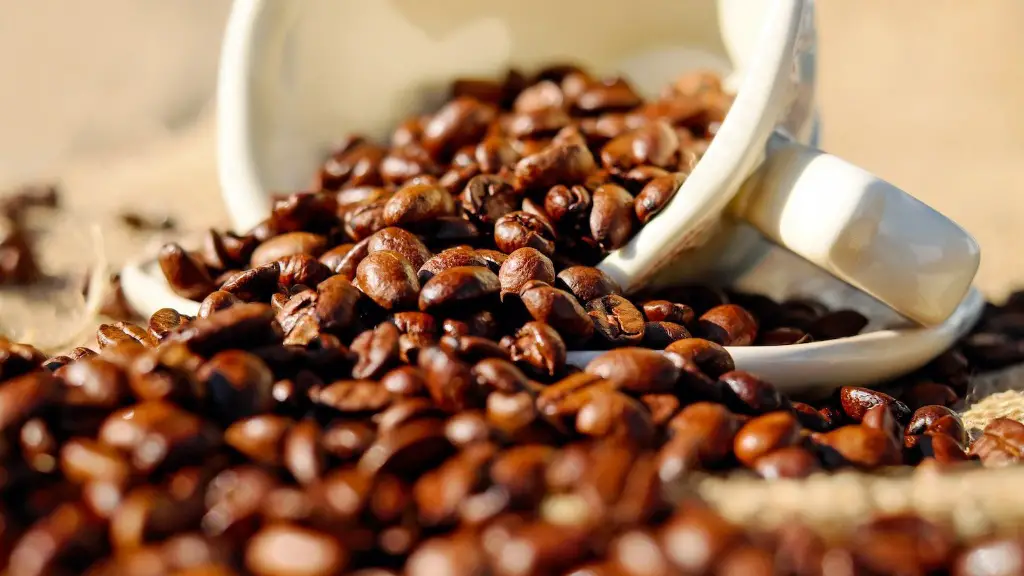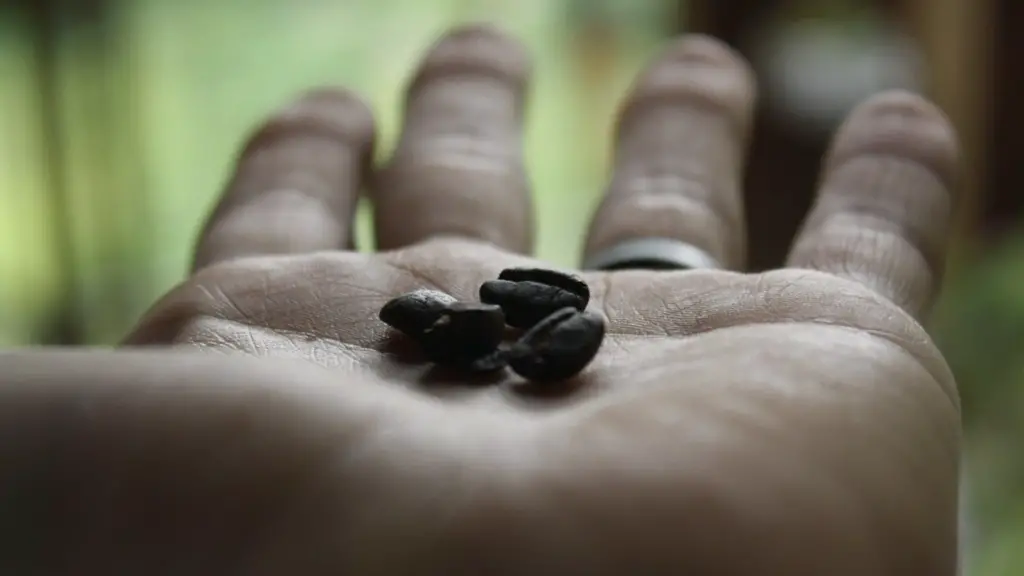The ketogenetic diet (also known as the ketogenic, keto or ‘keto’ diet) has become increasingly popular in recent years. It is a low carbohydrate, high fat diet, which has been found to be an effective and sustainable way to lose weight and improve overall health. But can you drink regular coffee whilst following a keto diet? The answer is yes, but with some important caveats.
Many people who start a keto diet worry that they will not be able to enjoy their favourite hot beverage. But research has shown that regular coffee can be enjoyed on a ketogenic diet, with some modifications. Most experts advise that if you are following a keto diet, you should avoid adding sugar, cream and other high carbohydrate ingredients to your coffee.
It is also important to be aware of the calories in your coffee. While regular coffee may not contain carbohydrates, it can still be high in calories, and drinking too many high-calorie beverages can lead to weight gain. An 8-ounce cup of black coffee contains only 2 calories, but other beverages (such as cappuccino, latte, and iced coffee) can contain much more. For example, an 8-ounce cup of cappuccino contains about 150 calories.
In addition to being careful of the calorie content, you should also consider whether the coffee is organic. Many coffee companies use pesticides and other chemicals when producing their coffee beans, which can be harmful to your health. Look for coffee that is organic, fair-trade, or shade-grown, and make sure it is free from additives and preservatives.
Finally, if you are following a low-carb diet, then you should be aware that some types of coffee can contain carbs. For example, cold brew coffee, caramel macchiatos, and mochas can contain upwards of 15-20g of carbohydrates in an 8-ounce cup. As such, it is important to be aware of the carb content of the type of coffee that you are drinking.
Coffee and the Keto Diet: Health Benefits
As well as being able to enjoy coffee on a keto diet, there may be additional health benefits to do so. Studies have shown that drinking coffee (in moderation) can help improve memory, focus and alertness. Coffee may also be beneficial for those on a keto diet, as it can help with appetite control, due to its effect on hormones such as ghrelin and leptin. Moreover, the caffeine in coffee may help to boost your body’s metabolism, aiding weight loss.
In addition, coffee and in particular, dark roasted coffee, may be beneficial for cardiovascular health. Dark roasted coffee has higher levels of compounds such as cafestol and kahweol, which have been found to have cholesterol-lowering properties. Research also shows that a cup or two of coffee a day can lead to a lower risk of death from cardiovascular-related illnesses.
However, it is important to note that although coffee can have beneficial effects, there is such a thing as drinking too much. The recommended amount of coffee for adults is 3-5 cups per day, however, it is recommended that pregnant women avoid drinking coffee altogether. If you have any health conditions, or any specific dietary or medical needs, it is always a good idea to speak to your doctor before drinking coffee, or any other food item, on a keto diet.
Types of Coffee to Drink on Keto Diet
If you are following a keto diet, then it is important to choose the right types of coffee. As mentioned earlier, be aware of the calorie content – opt for black coffee where possible, or opt for a low-calorie option such as an americano, or a cup of tea, if you’re wanting to cut down on calories. Additionally, opt for organic, fair-trade, or shade-grown coffee, and avoid artificial sweeteners, sugar and cream, which can all be high in sugar and carbs.
Another option is to use a low-carb sweetener such as stevia, monk fruit or allulose. These low-carb options can be added to black coffee to give it a subtle sweetness, without providing any added calories or carbs.
Finally, if you prefer cold beverages, then there are some low-carb options available. Iced coffee can be made with black (unsweetened) coffee and low-carb sweetener, or you can opt for a low-carb smoothie, or a frappuccino made with coconut milk instead of dairy milk, and low-carb sweetener.
Side Effects of Drinking Coffee on Keto Diet
Although there can be health benefits to drinking coffee whilst following a keto diet, there are also a few potential side effects to be aware of. Firstly, too much caffeine can lead to negative effects, such as headaches, nausea, insomnia and restlessness. Some people also experience an increase in blood pressure after drinking coffee.
Another potential side effect of drinking coffee is that it could lead to dehydration, as caffeine is a diuretic. Therefore, it is important to be sure to replace any fluids that are lost through drinking coffee. Additionally, it is important to note that too much caffeine can interfere with your body’s absorption of vitamins and minerals, such as iron and calcium, as well as with your ability to absorb dietary fats.
In addition, drinking coffee whilst following a keto diet can interfere with ketosis, as the caffeine can act as an appetite stimulant, leading to an increase in hunger and an increase in food consumption. Therefore, it is important to practice sensible coffee consumption and ensure that you are not drinking coffee between meals, as this could lead to a rise in hunger and potentially negate the benefits of a keto diet.
Final Considerations
In conclusion, it is possible to enjoy regular coffee on a keto diet — but with a few considerations. Avoid adding anything to your coffee that is high in carbs or calories, such as sugar, cream, or dairy milk. Additionally, opt for organic, fair-trade, or shade-grown coffee, and if you’re trying to cut down on calories, opt for black coffee. Finally, it is important to be aware of the potentially negative side-effects of drinking too much coffee, and practice sensible coffee consumption.
How to Pick the Freshest Roasts
When following a keto diet, many people find it difficult to choose the right coffee. The main thing to be aware of when picking the right coffee is to select one that is fresh-roasted and of high quality. Fresh-roasted coffee has a number of benefits – from improved flavour to better nutrient absorption. Additionally, fresh-roasted coffee beans have a longer shelf life, meaning you can store them for longer and make them last.
When choosing fresh-roasted coffee, you should look for the roast date or freshness date on the bag. If the date is more than three weeks ago, then it is not a fresh roast. In addition, it is important to be aware of the type of roast (light, medium, dark, french, etc.) as this can provide an indication of the flavour and intensity of the coffee.
You should also look for coffee beans that are rich in oils, as this is a sign of a high quality coffee. Additionally, you should smell the coffee – a freshly-roasted coffee should smell fragrant and rich, while an old roast will lack in flavour and aroma. Furthermore, it is also a good idea to test the beans before brewing them – start by grinding them in a grinder and smell and taste the grounds – they should have a bright and full-flavoured taste.
Where to Source High Quality Coffee
When sourcing high quality coffee for a keto diet, it is important to be aware that not all coffee is created equal. The most important thing is to be sure to source organic, fair-trade, or shade-grown coffee. Additionally, look for speciality coffee roasters, as these often source their beans from single-origin farms and can provide a traceable story behind the coffee.
Furthermore, it is a good idea to research different coffee brands to find the right one for you. Look for those with a good reputation and with a commitment to sustainability and social and environmental issues. You can also buy fresh-roasted coffee online, as there are many websites that specialise in fresh-roasted coffee. Finally, if you have access to a local coffee roaster, then this is an ideal option, as you can get freshly-roasted coffee and build a relationship with the farmer and roaster.
How to Optimise the Flavour and Nutritional Profile of Coffee
When following a keto diet, it is important to get the most out of your coffee. To this end, there are a few things you can do to optimise the flavour and nutritional profile of your coffee. Firstly, it is important to ensure you use the right grind setting on your coffee grinder. If you grind the beans too coarsely, then the coffee will be weak, while if you grind them too finely, then the coffee may be too bitter.
In addition, you should also be careful to use the right water temperature. Filtered or purified water that is heated between 195 and 205 degrees Fahrenheit is ideal. If the water is too hot, then the flavour will be burnt, while if it is too cold, then the coffee will be weak and flavourless. Finally, you should ensure you use the correct brewing methods, as using the wrong method can lead to coffee that is overly bitter or overly weak.





